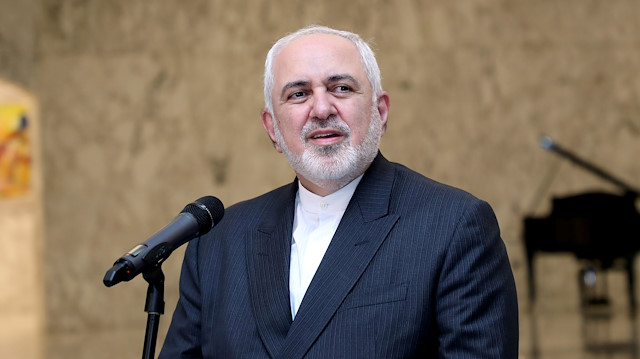
Javad Zarif also scheduled to visit Armenia, Russia, Turkey as part of regional tour which had previously been postponed
Iran’s Foreign Minister Javad Zarif arrived in Azerbaijan on Sunday night on the first leg of his regional tour of the Caucasus, which is aimed at promoting regional cooperation.
Upon his arrival at the Baku airport, the top diplomat said he is happy to see Azerbaijan having regained control over occupied territories from Armenia.
Zarif further said that Iran is “ready to help” people in Azerbaijan return to their homes in the liberated territories “as soon as possible.”
He also reaffirmed his country’s commitment to reconstruction efforts in war-torn Karabakh, which is internationally recognized as part of Azerbaijan but had been under the occupation of ethnic Armenian separatists.
The territories were freed from Armenian occupation after a months-long armed conflict between the two warring sides that ended with a Moscow-brokered truce in November last year.
Zarif, whose visit to Azerbaijan and other regional countries had been postponed earlier, is scheduled to hold talks with top Azerbaijani officials on Monday.
Among the issues to figure prominently in the discussions are reconstruction efforts in war-torn Karabakh and the implementation of joint economic projects.
The two sides reached an agreement last week to boost economic cooperation, with Baku welcoming Iran’s offer to contribute to the reconstruction work in Karabakh.
The regional tour will also take Zarif to Armenia, Russia and Turkey this week, which he said is aimed at the promotion of regional cooperation and expansion of bilateral relations.
Iran, which shares a 132-kilometer (82-mile) border with Azerbaijan, has traditionally maintained a neutral stance on Karabakh. However, following the latest flare-up, calls in the country have grown in favor of Baku.
Tehran recently announced its readiness to play a role in strengthening the cease-fire between Azerbaijan and Armenia, while emphasizing the need for a “permanent solution” to the crisis.
There have been reports of the Armenian side frequently violating the cease-fire deal reached between the two sides in November.
Relations between the former Soviet republics of Azerbaijan and Armenia have been tense since 1991, when the Armenian military occupied Nagorno-Karabakh, also known as Upper Karabakh, a territory recognized as part of Azerbaijan, and seven adjacent regions.
When new clashes erupted on Sept. 27, the Armenian army launched attacks on civilians and Azerbaijani forces and violated several humanitarian cease-fire agreements.
During the conflict, Azerbaijan liberated several cities and nearly 300 settlements and villages from Armenian occupation.
The two countries signed a Russian-brokered agreement on Nov. 10 to end the fighting and work toward a comprehensive resolution.
The truce is seen as a victory for Azerbaijan and a defeat for Armenia, whose armed forces have been withdrawing in line with the agreement.


